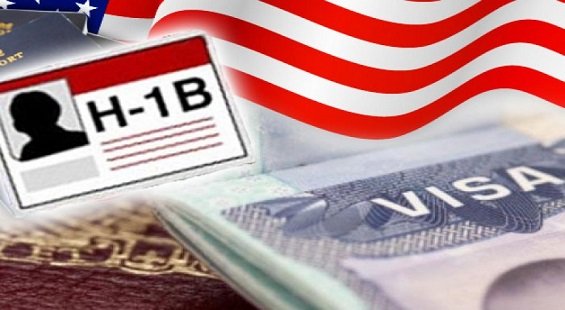Washington: The United States announced on Thursday that it would revise the selection process for H-1B visas, prioritizing salaries and skills rather than current lottery procedures.

The final rule, to be published in the Federal Register on January 8, officials said, is intended to protect the economic interests of American workers and ensure the benefit of the most skilled foreign workers is better than the temporary employment program.
The H-1B visa is a non-immigrant visa that allows US companies to employ foreign employees in specialized occupations that require theoretical or technical expertise. Technology companies depend on it to hire tens of thousands of employees each year from countries like India and China.
The US Citizenship and Immigration Service said that modifying the H-1B cap selection process would give employers an incentive to receive higher salaries, and petition for highly skilled positions, and set a more definitive path for businesses Will be able to go
The final register will take effect 60 days after it is published in the Federal Register. The next H-1B visa filing season is scheduled to begin on April 1.
“The H-1B temporary visa program has been exploited and misused by employers primarily to fill entry-level positions and reduce overall business costs,” said Joseph Adlow, USCIS deputy director for policy.
“The current H-1B random selection process makes it difficult for businesses to plan their recruitment, fails to take advantage of the program to compete for the best and brightest international workforce, and is primarily hired at low wages Foreign labor is an annual income. Posts at the expense of American workers, ”he said.
This effort will affect H-1B registration submitted by prospective petitioners seeking to file H-1B registration-related petitions.
USCIS stated that this would be applied to the relaxation of the H-1B regular cap and H-1B advanced degrees, but this would not change the order of selection between the two.
USCIS stated that the Department of Homeland Security had previously published a proposed rulemaking notice on November 2, 2020. Carefully considered the public comments received before the proposed rules were published as final rules.
According to the final rule, a version of which was issued by the Department of Homeland Security, instead, a registration system that faithfully enforces the Immigration and Nationality Act, while prioritizing registrations based on salary levels within each cap Giving H-1B will encourage employers. To offer higher wages, or to petition for positions requiring high-skill and high-skilled aliens who are communicated with higher wage levels, selection to file an H-1B cap-subject petition and To increase the chances of eligibility.
In addition, it will maximize H-1B cap allocation, so that they will most likely go to the best and brightest workers; He said it would serve to fill relatively low-pay, low-skilled positions to reduce misuse of the H-1B program, which is a significant problem under the current selection system.
“While the management of a random lottery system is appropriate, it is considering Congress’s statutory objectives for the H-1B program and its administration,” the final rule.
Changes to this final rule will apply to all registrations, including those for advanced degree waivers, to be submitted on or after the effective date of the final rule.
According to congress-mandate, USCIS can issue a maximum of 65,000 H-1B visas in a year. It can also issue another 20,000 H-1B visas for foreign students who have completed higher studies from an American university in STEM subjects.
During the period of public notice, the department said, many commentators expressed support for the rule and the prevention of visa fraud, misuse, and a flood of petitions by some employees or consulting companies.
One commenter stated that the proposed rule would disinvest companies that misuse the H-1B program and harm American workers. Other commenters stated that the proposed rule would reduce potential visa misuse by employers and ensure that all workers were paid according to their skills as employers would no longer reduce labor expenses by hiring foreign workers.
Another stated that the proposed rule would have a positive impact on American employees and educated American citizens, who make loans to their education difficult by making it harder for technology companies to discriminate against US citizens; American workers are being laid off in large numbers as corporations are outsourcing for profits; And the proposed rule is necessary because Indian corporations are acquiring American jobs.
